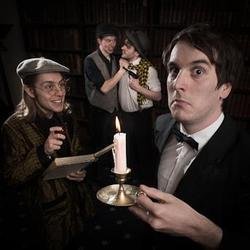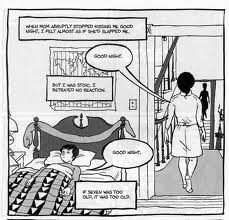As an English and History graduate, I chose my degree because I enjoyed the subject. I wanted the opportunity to explore the past in different mediums, understand the authors who sculpted some of my favourite fictional characters. Similarly, I wanted the opportunity to delve into the minds of people long forgotten, to be able to understand what prompted certain people to make the decisions that they did.
Going to University, was an opportunity to improve my own knowledge, and with it myself. There was no consideration as to what would happen once my three years were up and I was thrown into the real and daunting adult world. For me, I was going for the education, not the status of owning a degree. Yet, is it worth £9,000 a year? Is there a guarantee that owning a degree will stand you in good stead when applying for jobs? Why bother going to University if you only want an education, why not just read books in your spare time?

One very expensive piece of paper!
Is a degree valuable? There seem to be two sides to this debate. On the one hand, you have those who believe you should study a subject you are passionate in, something that you will enjoy because this will motivate you and give you a better chance at achieving those top grades. On the other side you have the pragmatists, who believe that because you are making a substantial financial investment in yourself, you should do so in a degree that will eventually turn a profit, ie. fast-track you into a good job.
Now, this is all dependent on what you want to achieve in your life. For those of you like me, who have absolutely no idea, option one makes far more sense. Narrowing down a degree was difficult enough, let alone picking one with the end goal of a graduate scheme in place. However, for those lucky people who know how they want to spend their lives working, option two is the sensible choice.
You also have secret option number three. For those people who want to secure a brilliant job at the end of their degree they can add a placement year into the mix. Most sectors are highly competitive, and with the number of graduates steadily increasing, it is more difficult to secure a job unless you have relevant experience as well as a degree. In this instance a placement year is a fantastic opportunity to make sure you enjoy what you plan on doing post-graduation, gain relevant experience, and have the opportunity of applying your knowledge in a real-life example. For an extra £9,000 it might be worth considering if you really want to secure a good career.
As a social science advocate, I have spent many holidays discussing with members of my family why I chose to study the past. The all-too-familiar ‘so are you going to work in a library?’ is something I am sure many history students can relate too. As well as providing you with a substantial understanding of the world, a degree in the social sciences leaves individuals well-equipped to deal with everyday situations. Transferrable skills including the ability to research, analyse and contextualise, as well as decode the truth from a pile of waffle are key things that employers look for. A social science degree proves that you are passionate.
What University also trains you to do is to be independent and work towards deadlines, more so than sixth form. Most of us have been spotted in the library burning the midnight oil the night before a deadline, but we get it done. In the real world you don’t have the option for extensions, if you fail to complete a project on time that is not going to reflect well on you. Or the company.
Juggling deadlines, weekly seminar reading, social life (if you are lucky enough to still have one of those a month before finals) and paid/voluntary work is something that cannot be taught. But by going to University, you learn more about yourself through this process, as well as developing new skills that will raise your job application forms above the rest. Being able to explain to a potential employer that you wrote your dissertation whilst organising an end of term ball for your society, as well as still working three shifts a week is something to be incredibly proud about. Yes, you might have single-handedly eaten your entire body weight in biscuits whilst doing it, but you got it done.

“Yes, you might have single-handedly eaten your entire body weight in biscuits whilst doing it, but you got it done.”
Moreover, University is a sheltered, miniature version of adulthood. Life does not hand you tasks one at a time, they always buddy-up and knock on your front door when you already have a million and one other jobs that need sorting. Prioritisation and organisation are skills that you learn indirectly as a result of being at University. A degree is more than just a very expensive piece of fancy paper. Behind it are numerous amounts of hours, sweat and words that each and every one of us have put into our work. It is also a list of skills which can be used to demonstrate to employers why you are the best candidate for the job.
For me, my time at University was an incredible and invaluable experience. I discovered depths to my personality and determination that I didn’t know existed. I learnt that it is possible to exist on four hours sleep a night and chocolate orange digestives for a weekend. I also learnt a hell of a lot about History and English. Knowledge that comes in incredibly useful when playing Articulate with my family over the holiday seasons, and indirectly answers those pesky questions about why my degree was useful.
Is a University education enough? All employers request relevant experience in job applications, and so possibly a degree is not enough. Yet despite this, a degree proves something that experience does not. It shows that you are so passionate about a subject that you were willing to spend thousands of pounds on it. This is why I believe you should choose your subject around your personal interest. If you are investing all of that money into something, you might as well enjoy it.






